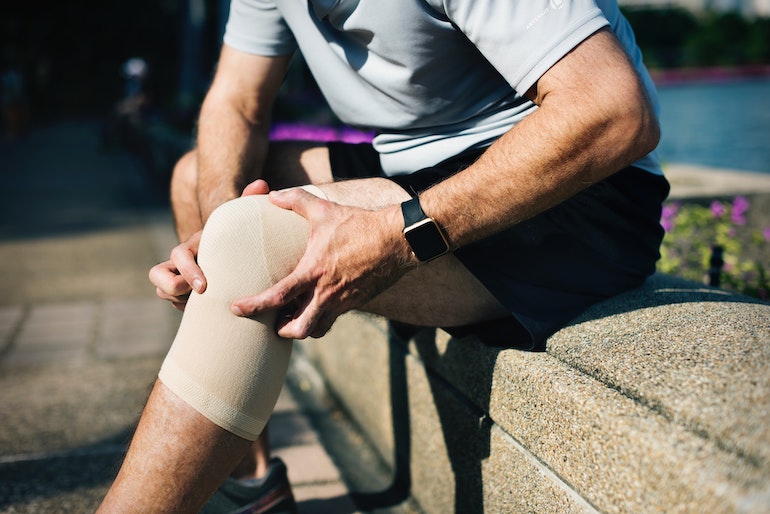
All of us have experienced some level of inflammation throughout our lives. It’s part of the body’s natural response to stressors, including a sore throat or a scraped knee. Those two examples lead to the onset of what’s called acute inflammation – but chronic inflammation is something far different, lingering for a long period of time in the body and causing a host of issues. What’s the difference between the two, and how does inflammation tie into sleep apnea?
The Difference Between Acute and Chronic Inflammation
Acute, short-term inflammation promotes healing by releasing chemicals called cytokines, which let your body know that it’s time to bring in immune cells, hormones and nutrients to fix whatever’s going on. But chronic inflammation, or persistent, low-grade inflammation, is more subtle — but a very serious issue. It produces a low level of inflammation throughout the body, which may not even be noticed by the sufferer, but can contribute to the development of a number of diseases, including heart disease and stroke.
The Latest on Sleep Apnea & Inflammation
Sleep apnea and inflammation have been linked in the past, but the exact nature of the connection up to this point has been a bit murky.
A new study provided some clarity by proving that sleep apnea creates a persistent low-intensity inflammatory state, with researchers concluding that obstructive sleep apnea should be classified as a low-grade chronic inflammatory disease. That’s because OSA often leads to interrupted breathing patterns and a lower concentration of oxygen in the blood, which can trigger inflammation.
There’s some good and bad news here for sleep apnea sufferers. The bad news is that untreated sleep apnea promotes a chronic, low-level inflammatory state – which is definitely not a good thing. Chronic inflammation is connected to persistent troubles such as body pain, frequent infections, and fatigue, and insomnia, as well as larger, more serious health issues, such as diabetes, cardiovascular disease, arthritis, and joint disease, allergies, and chronic obstructive pulmonary disease.
The good news is that treatment can improve inflammatory markers for sleep apnea. One common suggested lifestyle change for those with chronic inflammation is to improve sleep quality, and for untreated sleep apnea sufferers, a CPAP or oral appliance will certainly do this by promoting better, longer sleep.
Sleep Apnea Treatment: What You Need to Know
While this research is promising when it comes to the prevention of multiple inflammatory diseases, one big issue is that while CPAP treatment is proven to be effective, many find it to be extremely uncomfortable. The sensation of having air forced into the throat and the noise created by the machine are common complaints, which is why as many as 50% of the people prescribed to use a CPAP stop within the first year. Thankfully, there is an alternative called oral appliance therapy.
Studies on sleep apnea treatment and inflammation reduction thus far have primarily focused on CPAP machines, which are historically considered the first-line treatment for sleep apnea. The problem with CPAP is that adherence rates are persistently low, and even after efforts in recent years toward behavioral intervention and patient coaching, a 34% non-adherence rate among patients remains.
Another option is an oral appliance, a dental device used for sleep apnea treatment, which projects the jaw forward to open up the airway during sleep. Oral appliances are a first-line treatment option for mild to moderate OSA patients and an alternative treatment effective for severe sleep apnea patients intolerant to CPAP. Many patients find that oral appliances are more comfortable to wear and fit more seamlessly into their lifestyle than CPAP. One of our own patients at Sleep Better Georgia, Lynn, shared her story with us and why the switch from her “horrendous” CPAP to an oral appliance has changed her life. You can check out the video here.
While the connection between sleep apnea and chronic inflammation can seem scary, evidence points to the fact that either of the two treatment options above can improve chronic inflammation. For more information about sleep apnea and how you can get started with treatment, contact us today to schedule an appointment.
While this research is promising when it comes to the prevention of multiple inflammatory diseases, one big issue is that while CPAP treatment is proven to be effective, many find it to be extremely uncomfortable. The sensation of having air forced into the throat and the noise created by the machine are common complaints, which is why as many as 50% of the people prescribed to use a CPAP stop within the first year. Thankfully, there is an alternative called oral appliance therapy.
With this approach, a patient simply wears a small, custom-made mouthpiece to bed that fits over the teeth like a sports mouthguard. It slightly shifts the lower jaw forward, and this prevents the airway from ever fully collapsing. Oral appliances have been shown to dramatically reduce sleep apnea symptoms, which could potentially reduce harmful inflammation throughout the body as well.
If you or a loved one is experiencing the symptoms of sleep apnea, you should seek out professional care right away. Dr. Jeff Rodgers is a sleep medicine practitioner in Atlanta with over 20 years of experience, and he can provide a screening to determine whether or not a person is at risk for sleep apnea. If they are, he can help them get a sleep study performed in order to acquire a diagnosis. From there, he can work with a certified sleep physician to ensure a patient gets the treatment they need.
For more information about sleep apnea, the research cited in this blog, and how you can start getting treatment, contact us today to schedule an appointment.
